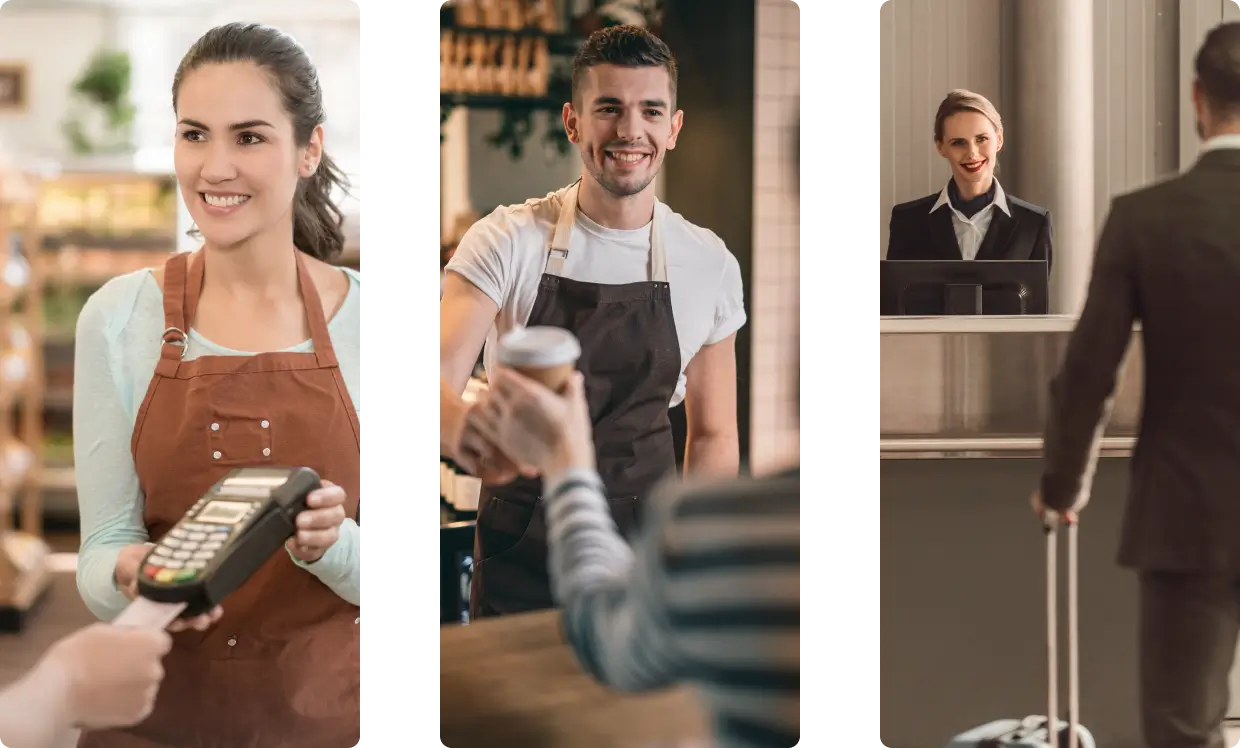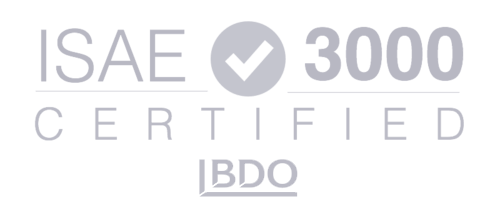With customers in 24 countries, SameSystem is widely present on the European continent. SameSystem’s office in Germany is far from the company’s largest, having opened in 2021. Still, the potential is enormous in Europe’s most populous country according to country manager Erik Nielsen.
Erik Nielsen is SameSystem’s energetic sales manager in the so-called DACH countries: Germany, Austria and Switzerland. Originally from Denmark, he has lived in Germany for 25 years and was self-employed within sales and marketing before joining SameSystem in 2021.
Nielsen has high hopes for SameSystem’s future in Germany in particular:
“There are 83 million people in Germany and a great need for digitalisation within retail and hospitality. The potential is huge. I’ll even put it this way, if Germany isn’t SameSystem’s biggest market in ten years, I have done something wrong and should be fired,” says Erik Nielsen, laughing.
But what sets Germany apart from SameSystem’s other markets? And what does SameSystem have to offer this specific market?
1. A conservative mindset about digitalisation
According to Erik Nielsen, there is quite a conservative approach to digitalisation in Germany, which poses both a challenge and an opportunity for the company.
“In some ways, Germany is behind its neighbours in terms of digitalisation. Many small retailers and restaurateurs consider themselves digitalised if they use Excel for shift scheduling, and they have an ‘if it ain’t broke, don’t fix it’ mindset,” says Erik Nielsen.
“Our job is to show them that while they might be able to make shift-schedules in Excel, they are wasting time. I have seen examples of retailers spending between 10 and 20 hours a month on administration, which was reduced to 30 minutes with a proper workforce management solution where all tools are gathered in one place. This freed-up time can be spent on the sales floor instead of in a back office. This increases the revenue.”
2. ‘The great resignation’ puts demands on planning
Like in many other countries, stores and restaurants in Germany are experiencing difficulties recruiting and retaining employees – part of a phenomenon dubbed ‘the great resignation’. As a result, it is more important than ever to spend resources wisely.
“When you can’t necessarily recruit the number of employees you want, you need to make sure that your employees spend their time where it makes a difference. That way, you both boost productivity and prevent employees spending time on boring and repetitive administration tasks, which helps retention.”
3. Competition from Amazon
Besides saving time on administration, one of the main advantages of SameSystem is the AI-powered forecasting, which allows retailers to predict the need for staffing. According to Erik Nielsen, this a game-changing feature in the German market:
“In Germany, the competition from online retail is even steeper than in Denmark, where SameSystem is headquartered. Amazon has a firm grasp on online shopping, which puts demands on physical stores to offer better customer experiences,” he says.
“People do still want advice from sales assistants and the option to try out products, but they don’t want to stand in line or to be met by empty stores. If this happens, they go home and buy their products on Amazon.”
By being able to make schedules that match the number of customers in the stores every hour of the day, retailers are handed a cost-efficient way to ensure attentive customer service.
“Accurate scheduling is almost a matter of survival for German retailers, and it’s what SameSystem offers its customers. With such a great product, I think the future looks bright for SameSystem’s German endeavors.”
Interested to learn about SameSystem’s other markets?
Read about the untapped workforce management potential in Spain here. And why SameSystem is making progress in Norway here.
Erik Nielsen brought his enthusiasm and cheerful nature to Copenhagen at SameSystem’s kickoff event this April.
Meet him in the video.

